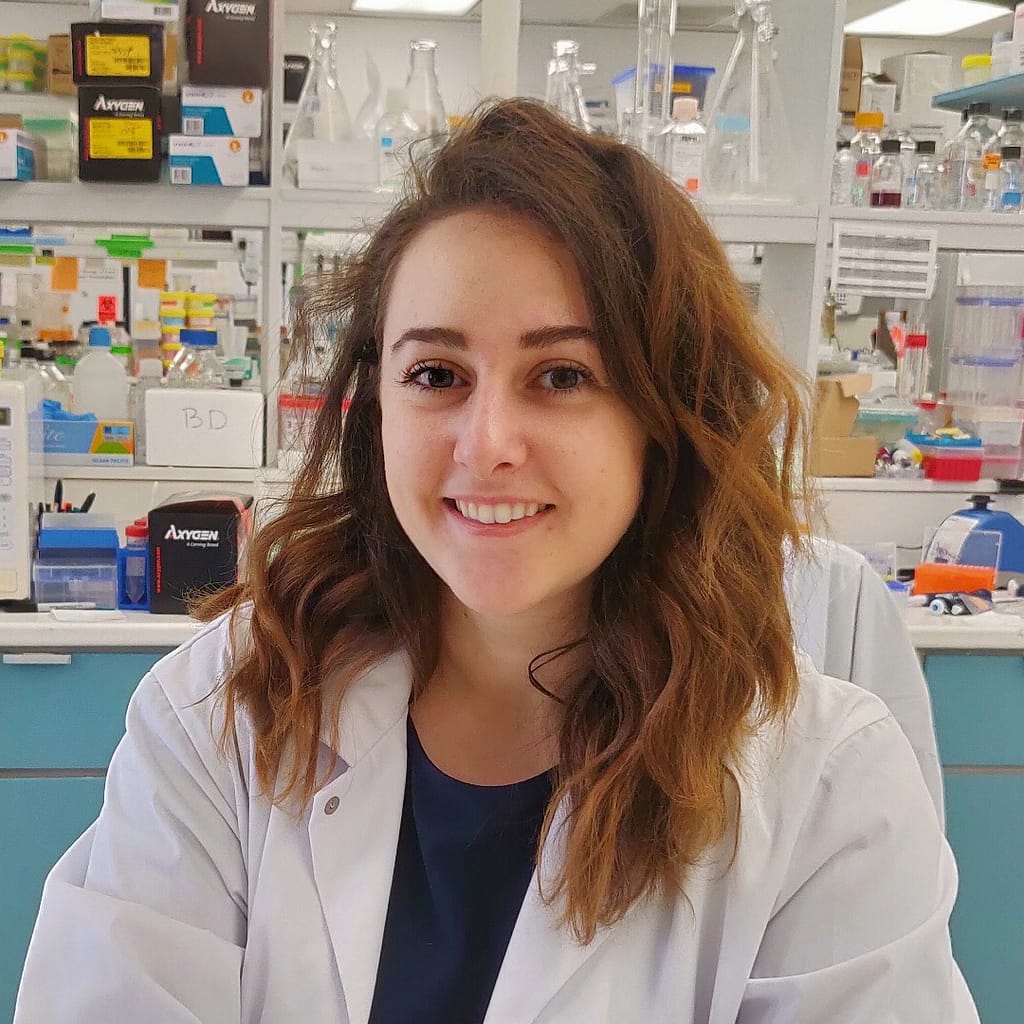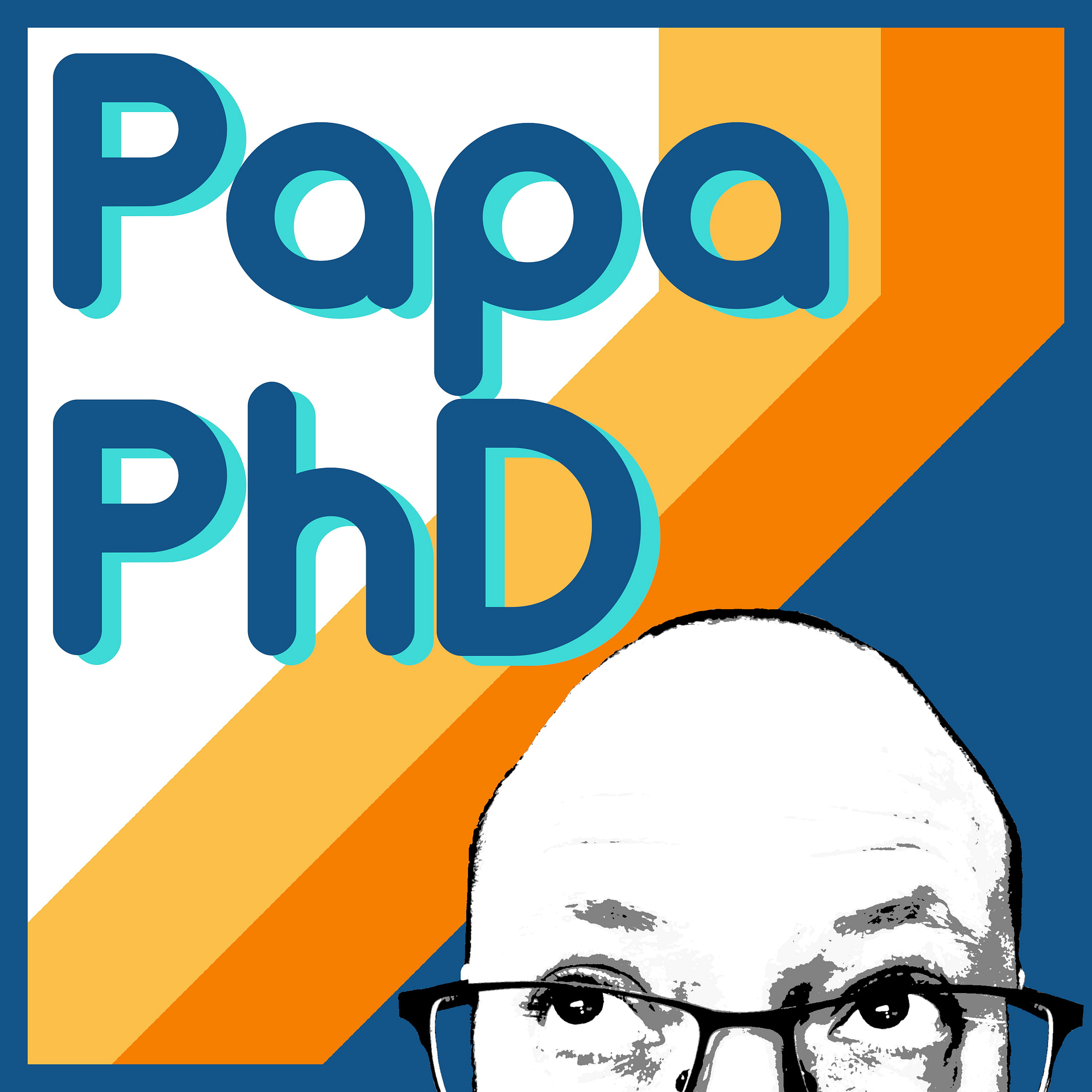This week on the show, I’m talking with Sarah Nersesian, a PhD researcher who pursues many passions and interests in life, while remaining a scientist at heart. During our conversation, we talk about making decisions during your academic journey, about finding ways of nurturing your creative side during your PhD, and about the important role mentors can play in your life, especially as a woman in academia.
What you’ll learn about in this episode:
- The importance of choosing an academic path that fits you
- How you can gain PhD-adjacent experience through internships
- Sarah’s charged schedule and how she finds balance in it
- How dividing her self-worth between her different centers of interest helps her deal with failure
- What launching a business during your PhD can look like
- How finding a mentor can help you launch your project
- How small startup grants could help you take the first steps
Do you enjoy Papa PhD? Leave me a comment here – one short sentence is enough! And be sure to include your Twitter handle – that way, I can thank you personally! Or if you prefer, fuel my long audio editing and notes page writing nights by buying me a coffee! Just click on the button below and voilà! An espresso, a cappucino, a latte – you decide. I’ll be immensely grateful.

Sarah Nersesian is a passionate researcher who loves to share scientific knowledge through illustrations and other visual communication strategies. She obtained her MSc in Biochemistry and Cell Biology at Queens University and is currently completing her Ph.D. in Microbiology and Immunology at Dalhousie University focusing on exploring the impact of intra-tumoural immune cells on tumour development and treatment responses.
Over her academic journey, she has published her research in journals including, Scientific Reports, Oncoimmunology, Frontiers of Immunology, The Journal for Immunotherapy of Cancer and the British Medical Journal. Many of these publications were accompanied by her custom scientific illustrations.
With her unique expertise combining scientific communication strategies with illustration and graphic design, Sarah founded Designs that Cell in 2017. Sarahs vision for the company was a space where scien-artists such as herself and others could combine their scientific foundation with their visual communication skills to illustrate the ideas of other members of the scientific community.
She is a senior illustrator at Designs that Cell and oversees all its operations.
Thank you, Sarah Nersesian!
If you enjoyed this interview with Sarah, let her know by clicking the link below and leaving her a message on Twitter:
Click here to thank Sarah Nersesian on Twitter!
Click here to share your key take-away from this interview with David!
Sarah's pearls of wisdom:
“You know, if somebody looked at my CV, they would be super impressed and, you know, would praise X, Y, and Z. But if I honestly put together a failure CV, it would be like a novel. It would be thicker than the Bible. The reality is, I’ve had so many people close doors in my face. I’ve had so many people question why I’ve been at a table, why I’ve been doing something. And I think having that worth, that self-worth divided and not having it into just your research project, like you were saying, David, is so important, because now I don’t look at myself as like, “Okay, I’m a scientist. And if I’m not a scientist, then I’m nothing else.” It’s – no, I’m a scientist, and I’m an entrepreneur, and I’m an artist, and I’m a role model, and I’m a feminist, and I have these identifiers, you know? And, like, I’m a wife now and a dog mom. And there’s all these things that I hold my self-worth into. That way, if I question something, it’s not everything.”
“It’s not that male professors can’t understand, but at the same time, they haven’t carried children, thay haven’t had to balance the expectations of being a wife, of being a mom and also of being passionate about academia. And listening to some of the struggles that both of these mentors of mine have faced, but still are constantly pushing, are constantly being successful and making themselves successful and fitting into a world that has constantly tried to push them out multiple times, is exactly what I need in a mentor.”
